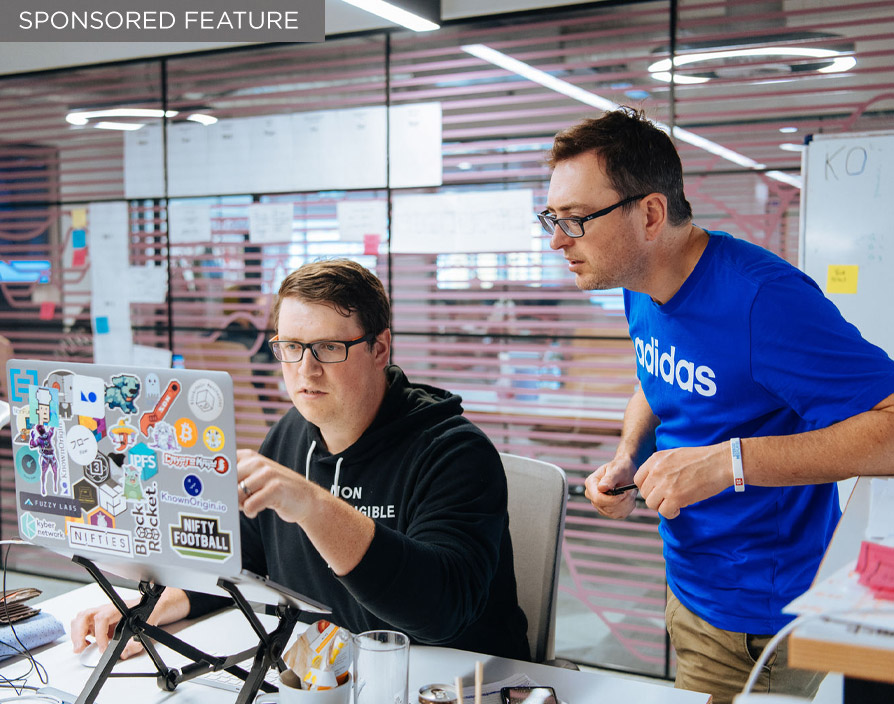With any new phenomenon, there’s always that sneaking sense of trepidation that it might all be a gimmick.
The first mobile phones were derided as ‘bricks’, and the £3,000 price tag suggested that they would be the reserve of the wealthy. The internet, email, even text messages were all viewed with similar suspicion – why would you try something new when a landline and the postman still functioned perfectly well?
It seems strange to us today, but the same is now true of AI.
We’ve heard a lot about how AI can transform our lives and businesses, but the question remains: how does this apply to me and my company?
Looking past the AI hype
Transformational. Game-changing. Remarkable. Business leaders have heard the hyperbole around AI and the effects it can have on their company, but many are uncertain as to how it applies to their business.
And with Google estimating that AI-powered innovation could create over £400bn in economic value for the UK economy by 2030, it’s easy to see why there is concern that it’s all overblown.
This is mirrored in research conducted by Be the Business on small business attitudes towards AI, which found that uncertainty acts as a barrier to technology adoption.
While cost and concerns around data security topped the list of barriers, AI being perceived as ‘not right for my business / won’t help my business’ and ‘I don’t understand it or how it will help my business’ also featured (21% and 13% of business leaders respectively). This suggests an information gap around AI in the small business space.
Similarly, 18% of respondents said there are ‘no barriers in particular’ to AI adoption. This reflects a cohort who doesn’t believe AI is relevant to them or doesn’t know where to start.
Left behind by a changing tide
But the risks of doing nothing outweigh the risks of innovating. The pace of change in technology is astounding: while it took seven years for the internet to reach 100m users, Generative AI reached that total in just three months. While AI may seem like a hype, it’s likely that it will transform how we do business.
Business leaders are already beginning to incorporate the new tools. 48% of small business leaders report that AI is already used in their business. While current AI use is largely ad-hoc, there are signs that AI tools will be incorporated into their business model in a more strategic way: nearly half (48%) also plan to invest in training to manage the adoption of new technology over the next year.
Business leaders who don’t move to integrate AI will find themselves quickly left behind and, with the current rate of change, they may never catch up. As a result, they will swiftly lose their competitiveness and see their business decline.

AI is a game changer for small businesses
The implications of AI for small businesses are endless. Already, business leaders report reduced business costs, increased revenue, improved resilience, greater competitiveness and better productivity.
Research by Microsoft found that workers were able to reclaim 1.2 hours a week from time-consuming, manual tasks with the help of AI. They were then able to spend more time on creative, innovative work, boosting productivity, development and job satisfaction in the process.
This finding is encouraging. Be the Business estimated that just a 1% annual improvement in small business productivity, maintained over five years by all employing SMEs, would grow the UK economy by £94bn. Could AI be the productivity driver that improves standards of living for all of us?
Business leaders are already pushing boundaries
Although AI is still largely being used on an ad-hoc basis, there are small business leaders who have successfully integrated AI tools into the day-to-day running of their business with great effect.
Jurga Zilinskiene MBE, founder of Guildhawk, a translation services business, saw vast improvements in project delivery following the implementation of AI tools. Working with a new client, her team saw cross-platform visibility increase from 12% to almost 100% with the integration of AI. This ultimately saved time, money and built a strong working relationship with the client.
Some business leaders have even launched new enterprises with AI technology at the very heart of their workflow. With Homemove, a property technology business founded by Louis O’Connell-Bristow and James Freestone, the team incorporated AI from the beginning, streamlining cross-country communication and maximising engagement. Since 2022, the business has grown 60-120% month-on-month, and has recently launched Homer, the world’s first AI-powered home valuation tool.
Innovations such as these are happening across the country, and it’s possible for every business leader to start incorporating AI into their workplace. The future is well and truly here.
Free tickets for Beyond the Hype: Making AI work for your small business on June 27 in Canary Wharf are available here.

About the authors
Piers Linney is a former Dragons’ Den Investor and the co-founder of Implement AI, a technology partner focused on business transformation through the power of artificial intelligence.
Anthony Impey MBE is CEO of Be the Business, the UK’s small business productivity experts.
Share via:







































